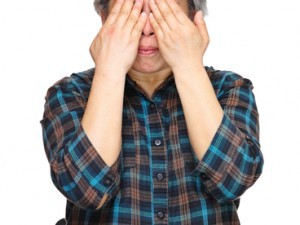 The vast majority of people will find it difficult to explain the difference between something that you dislike and something which you have a phobia about. If we stop for a minute and think of this, what exactly is the difference between a strong dislike of something and a phobia?
The vast majority of people will find it difficult to explain the difference between something that you dislike and something which you have a phobia about. If we stop for a minute and think of this, what exactly is the difference between a strong dislike of something and a phobia?
Physical impact
Whether you have a phobia or strong dislike of something it will prompt your brain to think in a certain manner. The strength of this reaction will give you an indication as to whether you are developing a phobia for a particular situation or item or just a strong dislike which you can “take or leave”. If you are developing a phobia this will go much further than just thought!
If you ask any phobia sufferer how they feel when they face their fears you will hear different variations on the same theme. As well as developing thought patterns it highly likely that severe headaches will follow together with physical symptoms such as faster beating heart, sweating profusely and perhaps more frighteningly, a fear of fear itself.
A dislike
A deep dislike of something will not prompt the array of physical symptoms which come with phobias which may be anything from mild to severe. Unless you have actually experienced a phobia it is easy to think that there is little difference between a deep dislike of something and a phobia. However, we guarantee that if you develop a phobia in the future you will know the difference!
If we take this one step further, some people may have a deep dislike for certain foods such as nuts, which is quite a common one. If this is a dislike of nuts then quite simply you would not choose products with this particular ingredient and you would be none the worse for the experience. However, if you had a phobia of for example crowds then once you are facing your fears, for example a crowded shopping centre, your phobia will begin to take over!
Safe havens
Research has shown that many phobia and anxiety sufferers have what is known as a “safe haven” which is an area or a place where they feel safe. This may be your home, this may be your car this may even be your office or some other location but it will be a place where the fear factor disappears and you feel secure. This is one of the more common traits of phobia/anxiety sufferers and shows that if this mindset of a “safe haven” can be expanded then this can help in the fight against the physical and mental challenges which these two particular conditions encourage.
Conclusion
In simple terms the difference between a strong dislike of something and a phobia is not only the mental but also the physical reaction this prompts. Where there is a strong dislike of something this impact would be relatively low on the radar but at the other end of the scale for those suffering from phobias. The fact is that reactions to a phobia are automatic and while phobia sufferers may well “work themselves into a panic attack” they have no control over the initial physical and mental reactions.






